Documents
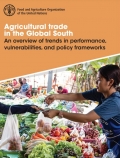
04 Apr 2022
The importance of South countries in global agrifood markets and trade has been increasing over the last two decades, with growth in their participation, as both exporters and importers, having outpaced that of North countries. South countries, as a group, are net exporters of fruits, vegetables, fats and oils, and tropical products such as coffee, tea, cocoa and sugar, and net importers of key food commodities such as cereals, meat and dairy products. These patterns reflect structural changes along the development path. Agricultural productivity growth has fuelled expansion in the production of some products, while population growth and urbanization, rapid economic growth and...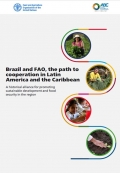
01 Apr 2022
In 2008, due to the growing interest of other developing countries in learning about successful Brazilian policies in the area of food and nutrition security (FNS) and agriculture, the Brazilian Government initiated a partnership with the Food and Agriculture Organization of the United Nations (FAO) to share Brazil's experience through South-South cooperation, based on FAO's comparative advantages.
Under the scope of this partnership, the implementation of Trilateral South-South Cooperation projects for the benefit of developing countries in Latin America and the Caribbean and Africa began in 2012, with technical support from Brazilian Cooperating Institutions (BCIs) such as the National Fund for Educational Development...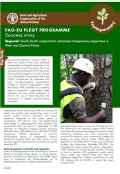
02 Jul 2021
Cooperation between national NGOs in West and Central Africa has advanced transparency and legality objectives in the forest sector across the region. The FAO-EUForest Law Enforcement, Governance and Trade (FLEGT) Programme has partnered with local NGOs to expand Independent Forest Monitoring activities by promoting regional cooperation. Independent forest observers are now better equipped to monitor the use of forest resources and participate in related decision-making processes.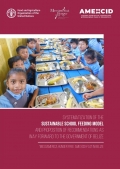
09 Jun 2021
This document was based on the “Sustainable Schools” model implemented in four pilot schools of the Toledo District in Belize. Both the model implementation and the development of this document were carried out within the framework of “Mesoamerica Hunger Free AMEXCIDFAO” programme (MHF), an initiative jointly led by the Government of Mexico, through the Mexican Agency for International Development Cooperation (AMEXCID), and the Food and Agriculture Organization of the United Nations (FAO).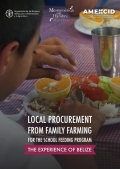
09 Jun 2021
This document was based on the “Sustainable Schools” model implemented in four pilot schools of the Toledo District in Belize. Both the model implementation and the development of this document were carried out within the framework of “Mesoamerica Hunger Free AMEXCID-FAO” programme (MHF), an initiative jointly led by the Government of Mexico, through the Mexican Agency for International Development Cooperation (AMEXCID), and the Food and Agriculture Organization of the United Nations (FAO). 